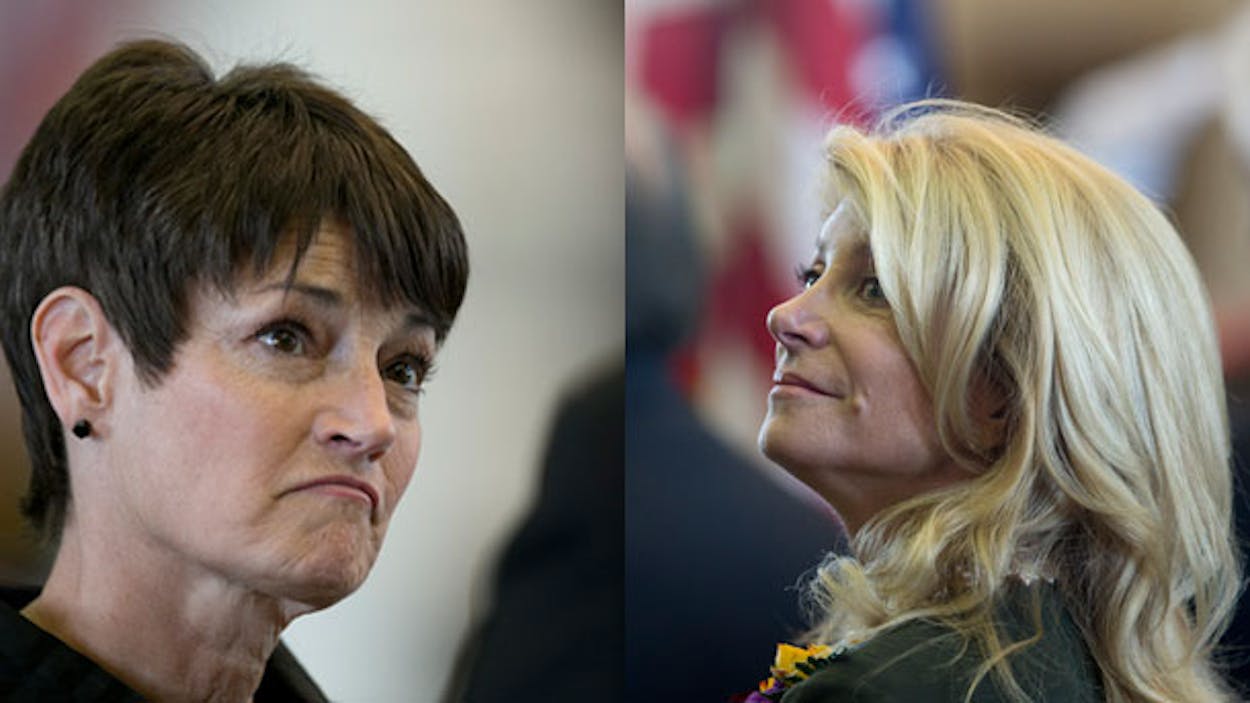Should a photo ID be required to obtain a marriage license? Yes, New Braunfels Republican Sen. Donna Campbell argued, and she laid out a bill on the floor Thursday that would do just that, bringing up memories of last session’s Voter ID bill and introducing a new twist to the conversation on equal access to marriage.
The bill, SB-1218, would require applicants for marriage licenses to present photo identification, as opposed to a photoless document like a certified birth certificate or a court order, both of which are acceptable forms of identification under current law. The legislation was written, Campbell said, in response to requests from county clerks who “would like a photo ID so they … feel more comfortable issuing the license.”
However, Sen. Wendy Davis, D-Ft. Worth, and Sen. Jose Rodriguez, D-El Paso, saw the bill as doing more than soothing the discomfort of county clerks: the ID requirement might effectively impede low-income citizens from obtaining marriage licenses, violating the equal protection clause of the 14th amendment in the process (not unlike the aforementioned Voter ID law.) That law, which required Texans to present a valid form of photo ID at their polling place, was struck down in August by a federal court. The court opinion stated that the requirement for a photo ID imposed “strict, unforgiving burdens on the poor.”
Davis was happy to fill Campbell in on what the burdens of providing a photo ID might be, a topic the legislature discussed at length during the Voter ID debate the previous two sessions. “Many people in our low-income communities, they do not have the resources to be able to get some of the forms of ID that you’re talking about,” Davis explained. “in order to get your driver’s license, there’s a cost to that. To get that ID you have to have underlying forms of ID, for example, a birth certificate.”
Rodriguez also raised the possibility that the bill might infringe on constitutional freedoms, suggesting that the bill “might be of interest” to the ACLU.
“I don’t know that it’s financially precluding folks from getting married,” Campbell said in response to Davis and Rodriguez’s concerns. “The people that issue the marriage license would like to put a face with the person’s whose name on the ID, [to know] that they’re really issuing a marriage license for the person whose name is gonna be on the license,” Campbell said. “I do not feel that we’ll disenfranchise folks. Certainly, if there’s examples of that in the future, we could address that.”
Davis urged senators to take a more cautious approach to the issue: “My concern is that if we wait to hear from the people who are affected by it … that instead we could have and should have taken a more thoughtful approach to making sure that this doesn’t impinge and doesn’t impede people who want to exercise that very basic civil right,” Davis replied.
Despite the objections of Rodriguez and Davis (the only two senators, Republican or Democrat, to asks question about the bill), the Senate seemed to share Campbell’s concern for perturbed county clerks: the bill passed 30-2.
- More About:
- Politics & Policy
- Voter ID
- Wendy Davis






